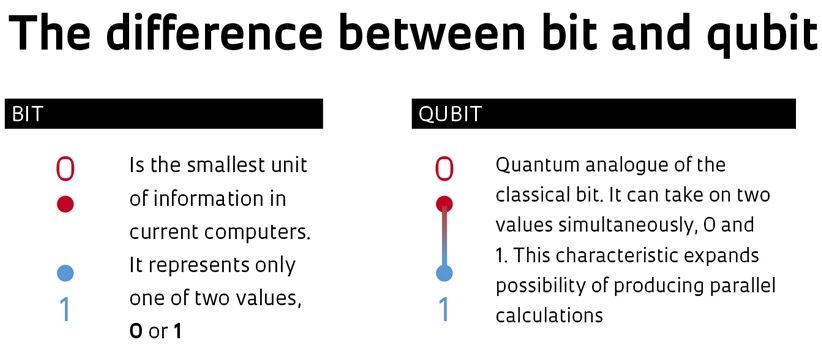Article repeats a lot of the knowns on QC such as bit v. Qubit; and finally provides some good info on pros and cons of Bitcoin and Lamport signatures technique with QC. However, the author didn’t seem to mention any of the work that D-Wave for example is doing with Block chaining. Also, I saw no mention of the work by Oxford on the logic gate which improve both the information processing performance and the security of information transmissions.
In a classical computer bits are used that can either be 0 or 1. In a quantum computer these bits are replaced with Qubits (quantum bits). These Qubits can be 0 or 1, or both at the same time. This is caused by a phenomenon in the quantum realm called superposition. At scales the size of an atom and small molecules, the spin of particles is not determined until it is observed. A pair of Qubits can be in any quantum superposition of 4 states, and three Qubits in any superposition of 8 states. In general, a quantum computer with n Qubits can be in a superposition of up to 2^n different states simultaneously (this compares to a normal computer that can only be in one of these 2^n states at any one time). Because of this, a quantum computer is able to perform computations at the same time, while classical computers perform computations one at a time.
This effectively means that the computing power grows exponentially for each Qubit you add to the system. A quantum computer will be able to make really difficult calculations all the classical computers in the world together would not be able to do before the end of times, in a relatively short amount of time. This opens to world of computing to be able to perform amazingly complex calculations, such as weather or large scale quantum mechanics, with extremely high precision. Unfortunatly, it will also be great at cracking certain types of cryptography.

